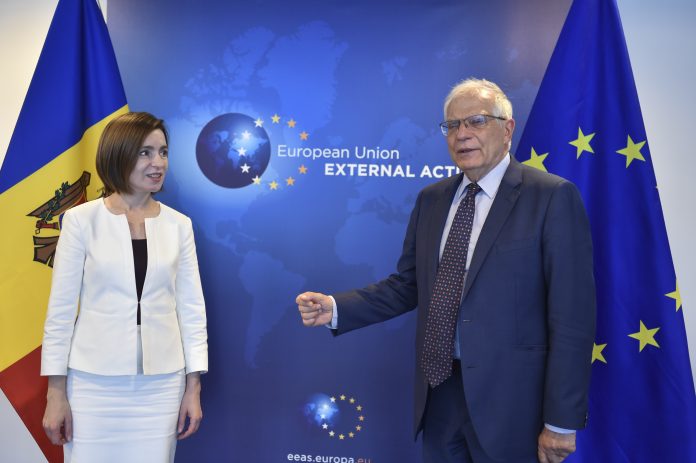Today the Council adopted a new framework for targeted restrictive measures which provides the EU with the possibility of imposing sanctions against persons responsible for supporting or implementing actions which undermine or threaten the sovereignty and independence of the Republic of Moldova, as well as the country’s democracy, the rule of law, stability or security.
As one of the countries most affected by the fallout of Russia’s illegal invasion of Ukraine, we witness increased and continued attempts to destabilise Moldova. The new sanctions regime will give us the possibility to continue strengthening Moldova’s resilience by targeting those who try to destabilise the country. This is an important political signal of the EU’s support to Moldova in the current difficult context.
Josep Borrell, High Representative for Foreign Affairs and Security Policy
Thanks to this new framework the EU will be able to target for instance individuals who obstruct or undermine the democratic political process, including the holding of elections, or attempt to overthrow the constitutional order, including through acts of violence. Future restrictive measures could also target individuals who engage in serious financial misconduct concerning public funds and the unauthorised export of capital, insofar as they could take control over or seriously influence the activities of state authorities.
Sanctions will consist of an asset freeze and prohibition to make funds available for individuals and entities, and a travel ban to the EU for natural persons.
The efforts to destabilise the Republic of Moldova have noticeably increased since the beginning of the Russian war of aggression against Ukraine, and represent a direct threat to the stability and security of the external borders of the EU.
This framework for targeted restrictive measures was adopted at the request of the Republic of Moldova.
On 23 June 2022 the European Council granted the status of candidate country to the Republic of Moldova.
The current leadership of the Republic of Moldova has made important progress in its reform agenda. At the same time it has been increasingly faced with direct threats to its stability coming both from internal groups with vested interests, and from Russia, which often collude to derail the country from its reform path. In this context, at the 23 March 2023 European Council EU leaders pledged to continue to provide all relevant support to the country, including to strengthen its resilience, security, stability, economy and energy supply in the face of destabilising activities by external actors.
On 24 April 2023, the EU launched the EU civilian mission in Moldova (EUPM Moldova) under the Common Security and Defence Policy with the aim of strengthening the resilience of Moldova’s security sector in the areas of crisis management and hybrid threats, including cybersecurity and countering foreign information manipulation and interference.

